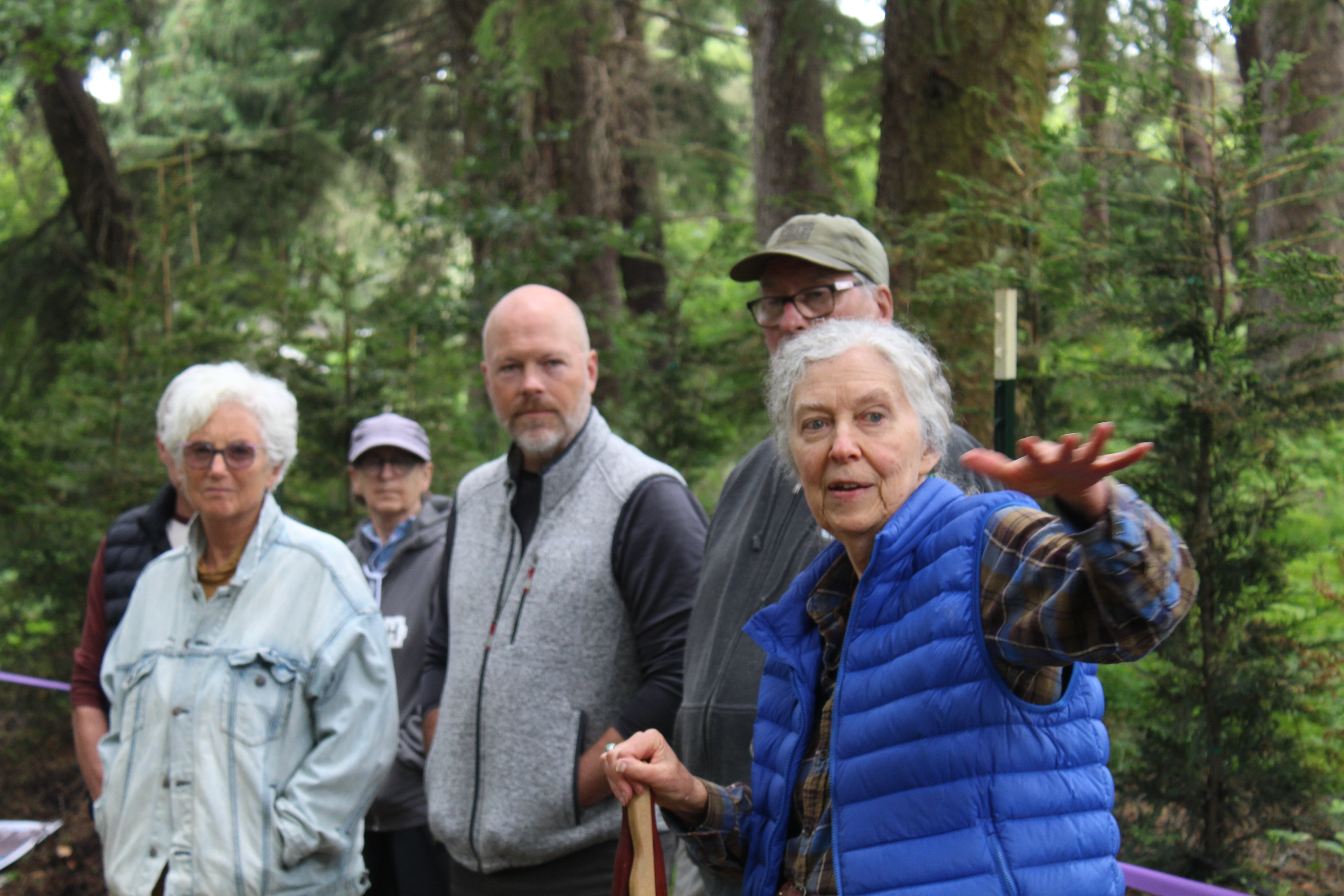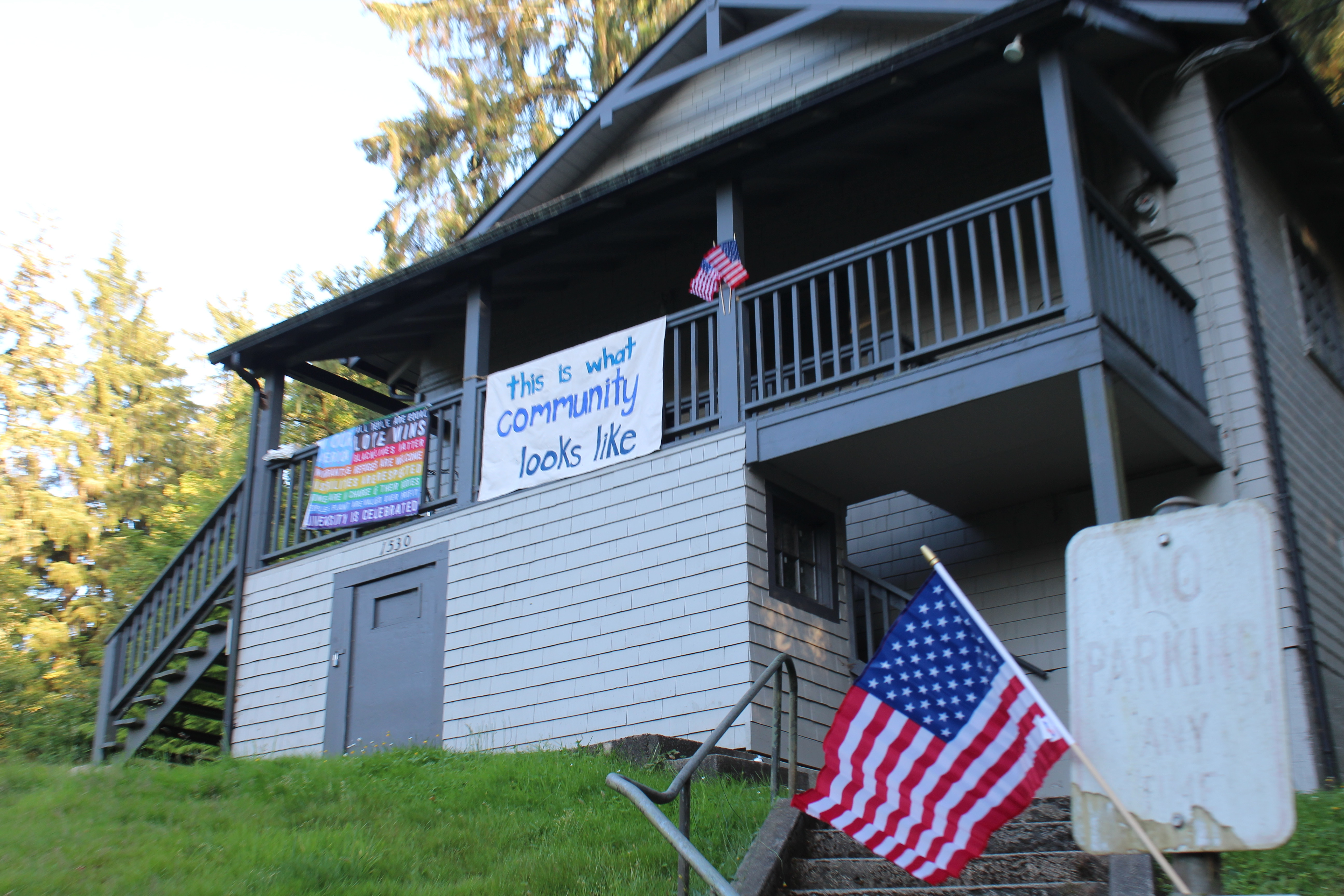Guest Column: Newspapers remain a foundation for the great town square
Published 7:41 pm Sunday, July 10, 2022

- Dick Hughes
This is the story of Max Monda, a mummified orange, and, idiosyncratic as it might sound, the role of the opinion press.
Trending
Longtime PR executive and political insider Pat McCormick recently came across a black-and-white photo with the inscription, “Dear Pat. Thanx for the help. Max Monda 4-29-83.”
“Max Monda” was the alter ego of the late Salem Statesman Journal columnist Ron Blankenbaker. The photo shows Blankenbaker beside his newsroom desk, which was piled several feet high with press releases, assorted papers, newspaper clippings and what-have-you spilling onto the floor. A calculation written on the adjacent blackboard says, “15 cubic feet of total Mess.”
Editors feared someone might get hurt if Blankenbaker’s desk unleashed an avalanche of debris on an unwitting passerby. It also was a fire hazard, especially with smoking prevalent in the 1980s newsroom. So he enlisted McCormick’s help for a cleanup.
Trending
Blankenbaker spent as little time as possible at that desk, preferring the basement press room of the Oregon State Capitol. Anyone could stroll into the wide-open press room – and they did – to pass tidbits to reporters.
Even more critical to Blankenbaker’s style of reporting was the coffee shop at the other end of the basement, where he held court as lobbyists, politicians and staffers dropped by. Gov. Vic Atiyeh was among the many officials who routinely lunched there.
Over time, Blankenbaker’s newsroom desk in downtown Salem turned into impromptu museum of an opinion columnist’s life. As he recounted in a column detailing his undirtying deed, the cleaning revealed a dried wreath, a table fork with flashing lights, a white striped muffler, a clipping of a story he’d written 14 years earlier about trumpeter Harry James, and mounds of phone messages he’d probably never returned or even seen.
And yes, a mummified orange once existed beneath those 40 or 50 pounds of paper.
In a profession that encompasses both the organized journalist and the disordered, Blankenbaker was in a class by himself. I can attest. My desk was around the corner from his.
A few weeks after that photo was taken, I too moved down the street and joined him in the Capitol as the newbie covering the Legislature and state government. A few years later, I became – to his consternation – his editor.
“R.B.” was both a local and statewide institution, fully invested in the public’s right to know. His political columns were “must reads” – enlightening or aggravating, topical or tiresome, depending on one’s point of view. They certainly got the readers’ attention, and the politicians’.
During the week of Independence Day, I’ve been thinking about Blankenbaker and others of his ilk – local columnists who know their community so well that they become part of its character, who write fearlessly but thoughtfully, and who keep the readers’ interests at heart.
The founders of the U.S. recognized the role of newspapers. The First Amendment, which embraces freedom of the press, is the best-known example but not the only one. The Constitution authorized Congress to establish post offices and post roads, in essence granting governmental support to ensure delivery of newspapers.
The newspapers of early America primarily comprised opinion – first-hand accounts, letters, treatises. Today’s newspapers, whether in print or online, remain a foundation for the great town square of public opinion and debate.
Let me stress that the role of a newspaper opinion piece is not to tell people what to think but to get them to think. Besides, readers always get the last word through letters to the editor. Letters are a window into the soul of a community.
Long ago, a letter writer upset with the tone of a Blankenbaker column called him a “pompous twit.” He concurred, which eventually led to creation of Pompous Twits Anonymous.
From then, Blankenbaker annually anointed a new cast of not-so-anonymous Twits – “a politician, bureaucrat, lobbyist, journalist or other public meddler caught in an act of pomposity too outrageous to ignore.” Rather than recoiling from such a barb, officials looked forward to seeing whether they made the list, though not always appreciating the accompanying description of their ineptitude or pomposity.
Each year, Blankenbaker dunned the Twits to help needy families at Christmas with gifts and children’s clothing, but sometimes appliances, auto repairs, back rent – even a gravestone honoring a young sister lost in a car crash.
The Twits, who included every governor during Blankenbaker’s tenure, crossed political and philosophical lines. A December 1989 news story recounts that helping deliver gifts that year were Gov. Neil Goldschmidt, State Treasurer Tony Meeker, then-Secretary of State Barbara Roberts, ex-legislator Mike Kopetski and lobbyist Ted Hughes, who annually bore a striking resemblance to Santa Claus.









